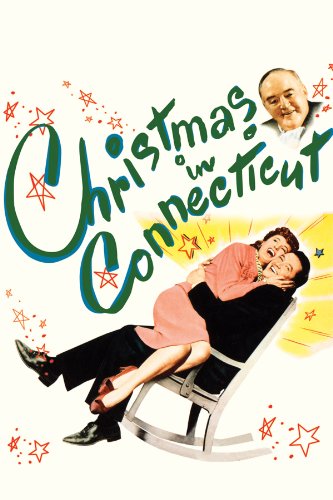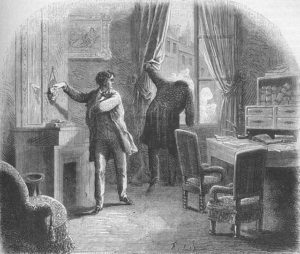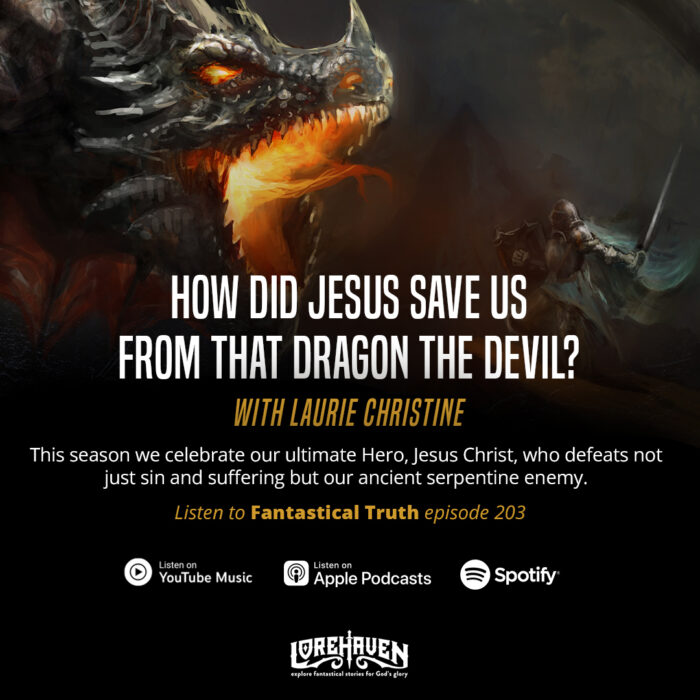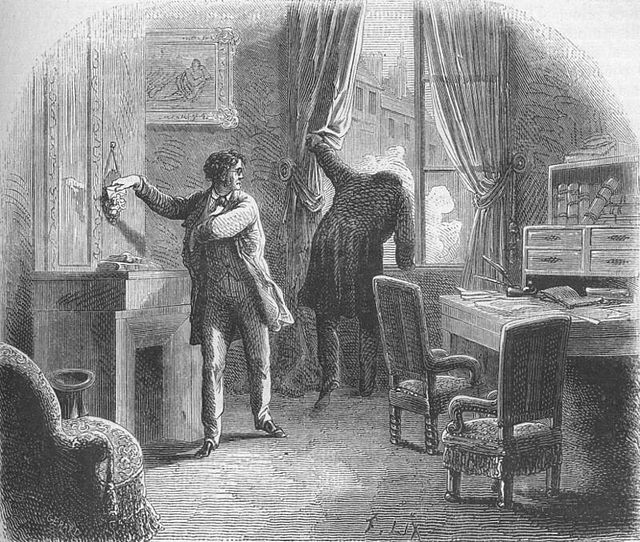An Airing
I thought that, this Wednesday, we could all have fun talking about the things that bother us. Yes, it’s time to air our pet peeves – literary pet peeves, of course, which is why I’m not going to bring up cluttered countertops and the evident conviction some people have that anything slipped between the fresh fruit and the bread never has to be put away.
I’ll start. One thing I can’t stand in fiction – it’s a deal-breaker in any novel or movie – is …
No truly good or likable characters. I once saw a black-and-white film called Christmas in Connecticut. It had every appearance of being a quaint, old-time movie, until I realized that every character in it was a jerk. The heroine wrote a column for a magazine, a job she had gotten by lying to everyone about her life. With her boss about to find out, she agreed to marry a man who could bail her out, and together they commenced Operation Fake Out the Boss. Or as the movie is called, Christmas in Connecticut.
called Christmas in Connecticut. It had every appearance of being a quaint, old-time movie, until I realized that every character in it was a jerk. The heroine wrote a column for a magazine, a job she had gotten by lying to everyone about her life. With her boss about to find out, she agreed to marry a man who could bail her out, and together they commenced Operation Fake Out the Boss. Or as the movie is called, Christmas in Connecticut.
The boss, a presumptuous and, yes, unlikable sort, invited a few people to go along to Christmas in Connecticut. One of them turned out to be The Hero, and of course he and the heroine fell in love, which meant dumping her fiance. But don’t feel too bad about it! He wasn’t too pleasant a guy, either. It would have involved The Hero dumping his girlfriend, too – who, by the way, he had romanced solely to get privileges at a military hospital – but shortly before the curtain closed, she dumped him. For his friend.
In a story like this, there is no character worth rooting for. In a better world, they would all lose. What I want in fiction is heroes I can root for, not heroes whose moral deficiency leaves me feeling the same ambivalence a writer once expressed regarding the Iran-Iraq war of the 1980s: “Why can’t they both lose?”
Excessive romantic sap. Note the word excessive. I don’t mind romance at all, but sometimes authors lay the sap on too thick. I once read a book – a good book, despite the fact that I’m dragging it into my literary complaints – that had one too many I love you, you love me! moments. I wanted to take the heroine aside (it was written from her viewpoint) and say, “Look, I’m not in this to hear how your boyfriend’s eyes make you feel. I’m here for the superpower-inducing bracelet and the master criminals and the supernatural warfare. So let’s get back to the plot, shall we?”
The Missing Number. In these days, when every book becomes a series and the story never ends, you never want to read a book without first finding out its number – you know, whether it’s number one, three, nine, et cetera. This is important information, and if it’s not on the front cover, it ought to be prominent on the back cover.
But publishers have gotten furtive. I can’t recount the number of times I’ve stood in an aisle examining a novel, trying to determine if it was (1) part of a series, and (2) if so, which part.
 It’s true that if you really examine books – if you read both covers thoroughly, including the author’s bio, and skim through the first pages – you will probably be able to figure out what the vital number is. But you know something? We readers don’t want to really examine every novel that interests us. And we don’t think we should have to. We think all you publishers should just let us know. We don’t like getting a book only to be sandbagged by the revelation that it is #2 (3, 4, 5 …) in a series, nor do we like to be made to parody Edgar Allan Poe’s detectives, searching for the missing number, so GIVE US A FRIENDLY TIP-OFF, OK?
It’s true that if you really examine books – if you read both covers thoroughly, including the author’s bio, and skim through the first pages – you will probably be able to figure out what the vital number is. But you know something? We readers don’t want to really examine every novel that interests us. And we don’t think we should have to. We think all you publishers should just let us know. We don’t like getting a book only to be sandbagged by the revelation that it is #2 (3, 4, 5 …) in a series, nor do we like to be made to parody Edgar Allan Poe’s detectives, searching for the missing number, so GIVE US A FRIENDLY TIP-OFF, OK?
Okay.
Now it’s your turn. What are your literary pet peeves?








































First, I agree with all your pet peeves, Shannon.
Second, as we just talked covers yesterday, it’s kind of on my mind, so a pet peeve I have is when the cover really doesn’t have much to do with the story.
Another pet peeve for me is when the story (not a series) ends and it’s left me hanging. I don’t mind having to day dream a bit, but when the story is so open ended, I don’t have closure and feel like I wasted my time reading it. I don’t have lots of time for reading, so I’d like to make it count.
Along the lines of no truly good character is when I start rooting for the supposed villain, or I’d rather be following one of the supporting characters, such as Gale in the 2nd and 3rd of the Hunger Games trilogy.
When I play detective at figuring out if I have the 1st in a series or not, I compare publishing dates, but that only works if there’s multiple books by the author in stock. Sue Grafton’s Alphabet series is a perfect example of letting the reader know which came first.
The opposite problem is when the author intends to publish a series, states so in the first book title or cover, then five years later you still can’t find book 2.
Pam Halter re your 1st point: I remember the cover on a classic historical by Georgette Heyer (The Spanish Bride) where an egregious error was made. The hero & heroine were shown standing by a Spanish wall, him in his British REDCOAT uniform. BUT the author had made a big point about the hero being part of a famous British unit, the 95th Rifles, who wore *dark green* uniforms! Huge error that anyone who read the book would pick up on. How’s THAT for not paying attention to the novel’s contents?
The problem is often the graphic artist, who hasn’t read the story, except maybe the back cover copy, also doesn’t consult with the author. This is pretty standard, but it makes no sense to me. Especially with all the errors in cover designs over the years. Why aren’t we learning from our mistakes?
Hah! Good topic! I agree with all your “pet peeves” too. One thing that really turns me off in Christian fiction is when the characters constantly hear from God. Like an audible voice (in their head? I guess?) that is written in italics. You are mine, Beloved. Or something like that. It drives me crazy. I mean, think about how many times in Scripture that God spoke to people in that direct way, using words, compared to how many times we see this in Christian fiction. I think it gives such a false picture of how God speaks to people, in real life. At least it’s false for me. I always get a bit depressed, to tell you the truth, after reading books like that. Wondering what is wrong with ME that I don’t hear God speaking like that all the time? So HUGE pet peeve for me!
Rant over.
So much this. I find the “God whispered sweet nothings to me” approach very jarring and out of keeping with the way the Lord spoke to people (when He did speak to them directly, which was historically quite rare) throughout Scripture — not with vague feel-good affirmations to make people feel better inside, but important messages that were meant to change their actions, and were also to be shared with others. Certainly He spoke words of comfort to the prophets, as well as words of warning and judgment, but they were never just for the benefit of one hearer, and they usually contained a valuable lesson for future generations of God’s people as well.
I think we Christian fantasy authors often worry that God seems too distant or abstract in our stories, so we are tempted to let Him get a comforting word in now and then as a sort of fantastic wish-fulfillment. But putting words in God’s mouth is a very tricky sort of proposition, I think. It’s so very easy to do it badly, it’s often better not to do it at all.
I have actually had God speak like that – at least, I think it was him. But it was only once. And it was about me caught in a whirlpool of worry over two choices – both reasonably good, but one was more risky in terms of money and life direction.
I kept thinking how I didn’t want to mess up my life by choosing the wrong one, and I just felt this line of thought sort of smash through all that fretting:
“You can’t mess your life up when I have you in my hands.”
It just cleared away the fog, reminding me about how even if I ended up broke, God had me in his hands, and he was going to take care of me.
I also wrote an article about a guy who, very much in the same state, was worrying that he wasn’t growing as a Christian at the speed he thought he aught to be, and was instead, fighting the same battles over and over again. One night, he was laying in bed, praying about how defeated he was feeling, when he had a sense of one line crashing into his mind:
“I believe in you.”
He sat up in bed, freaked out, he told me, wondering if that was actually God.
However, in both those instances, it was out of the norm, and totally unexpected. It certainly isn’t like that happens a lot. I think I’ve had that one other time, but I don’t remember it now. So based on my experience, if I wrote about a person experiencing that, I’d tend to make it an important event in the person’s life. Not just a passing “sweet nothing” from God.
I used the device of God speaking in Bid the Gods Arise. One reviewer hated it, and another loved it. I didn’t really want to do it, initially, but thought I should, given the fact that there was so much potentially confusing divine activity going on in the story already; it needed some clarification, needing the “real god to stand up,” as it were. I figured I had biblical precedent, as the scene in question was very much inspired by Samuel being called by Yahweh.
I believe God can and does override normal life to “break in” this way. That’s the definition of a “miracle.”
But what about when overenthusisastic Christians, or Christian leaders or authors, start on the whole notion of “training to hear God’s voice” or practicing certain rituals so you can hear Him daily — or worse, refuse to make a decision until you get the day’s daily prompting? That’s plain old Western mechanization. That’s turning a “miracle” into something non-miraculous. Because by definition miracles don’t, and shouldn’t, occur every day.
Greg Koukl has an excellent three-part article series on this related issue, titled “Does God Whisper?”.
Another pet peeve for me is consistently bad mechanics. The story may be fantastic, but numerous typos and other errors are hard to ignore. It makes me want to pull out a red pen and edit as I go!
Yes – I hate when books don’t clearing state their order! And they rarely do anymore.
My biggest literary peeve is simpering, timid, beyond-innocent heroines who are perfectly lovely in each and every way. They are so unrealistic and delusionally sheltered that it drives me crazy.
Heh, I have quite a list! It’s how I filter through the slush pile of free books and decide what’s worth reading. I will toss a book if:
A hero begins the book bored with his extreme awesome.
The hero jumps into bed with anything female. (Add corollaries to this if it’s Mercedes Lackey.)
The cover promised dragons, but they’re only metaphorical.
The cover promised Griffins, but they’re only a title of some king.
The magic isn’t magic, because magic is evil and only God is allowed to be supernatural.
Bad writing.
Fanfic with the names changed.
One more snarky kick-butt girl wielding a Final Fantasy-Esque weapon.
Any kind of a sniff about the author’s views on optional genders.
A book I just tried to read where the super-strong heroine put on a skanky dress and was instantly kidnapped by thugs despite her super strength. I’m sorry, authors shouldn’t break their own rules in the same chapter they introduce them.
There’s more, but I’ll stop there.
Ditto about anything that sounds fantastic but is really metaphorical. There was one book at high school called “American Dragons” but it was about Korean or Japanese immigrants …and I almost picked it up multiple times.
Tracey-re mechanics: I AGREE!! My husband is tired of me ranting when I find grammar/spelling/usage errors. LOL ‘It’s’ vs ‘its’, for example, or the book that used ‘recant’ where ‘recount’ was SO OBVIOUSLY what was meant!! (screams & tears hair out) Is it because they over-use computerized checking OR is it the state of editors/proofreaders is that bad these days? ‘Cause I’m not speaking just of self-published things where author might not be able to pay for editing assistance but books from established publishers.
Christian-fantastical fiction peeve no. 1: Nephilim. They were just really famous human beings, already. I’d rather not my novel turn into an hour of “Coast to Coast AM.”
Christian-fantastical fiction peeve no. 2: Satan and demons and things. This is just me, but I have to put up with those enough in reality, and I have no desire to spend pretty much all the story wondering what nastiness they’re up to.
Christian-fantastical fiction peeve no. 3: Aliens are actually demons! Say it ain’t so.
Christian-fantastical fiction peeve no. 4: Relic-obsession. It gets really old, and also spiritually questionable, even pagan.
Christian-fantastical fiction peeve no. 5: Front covers in crude colored pencil, or worse, reproduced stock(?) art without even proportional resizing. Again, this is just me, and perhaps it’s unfair if the story within is great, but as we’ve recently noted, gorgeous covers do matter.
More here.
1. More of a problem in secular fiction: excessive darkness. Grimdark, born-to-brood, miserable characters who look like greasy rejects from a soap opera and have all the redeemable qualities of a tapeworm. And if the characters aren’t like that, the settings are. Wallowing in nihilism is not my idea of a good time. I’ve said it before: I don’t mind going through a dark tunnel, but I want there to be a light at the end of it.
2. More of a problem in Christian fiction: excessive lightness. More to the point, the notion that Belief In Jesus Makes Everything Better. Sappy sinner’s prayer conversions, goody-two-shoes characters, or worse yet, characters that are supposed to be real but come off as trite. No real guts, no real trouble. Trials and Tribulations are Truly Trivial as long as you Believe. The issues of this world are dealt with lightly, if at all, and somehow Other, as if they don’t fully effect a True Christian.
3. Sequels designed to cash in on the original without adding anything to the narrative. You tend to see this more in film.
4. Knockoffs. I don’t mind homage, but if your story feels as though it really should have been written by someone else because you borrowed every element without giving it your own spin, then you probably didn’t need to bother writing it in the first place.
5. World-building or name creation that is so complex or alien that it distracts from the tale because you spend too much mental energy just trying to orient yourself.
One of my literary pet peeves revolves around strong female protagonists. Don’t get me wrong, I love the occasional kick butt warrior woman. But it seems like most of them are sarcastic jerks and/or man-haters. Can’t we have strong female characters who a) are likable people and b) aren’t obsessed with one-upping the guys? Or even who start out with that kind of persona but mature during the course of the plot?
A hearty AMEN to that!
Ditto to so many of these!
@Kathy E: I know, it’s terrible! I’ve even read books put out by big-name publishing houses (such as Thomas Nelson–can you believe it?) that look like they skipped their final polish. And it’s a little sad to reread books you loved as a young teen, only to get distracted by the errors you didn’t notice then.
Becky….
Yes. I can’t affirm this emphatically enough.